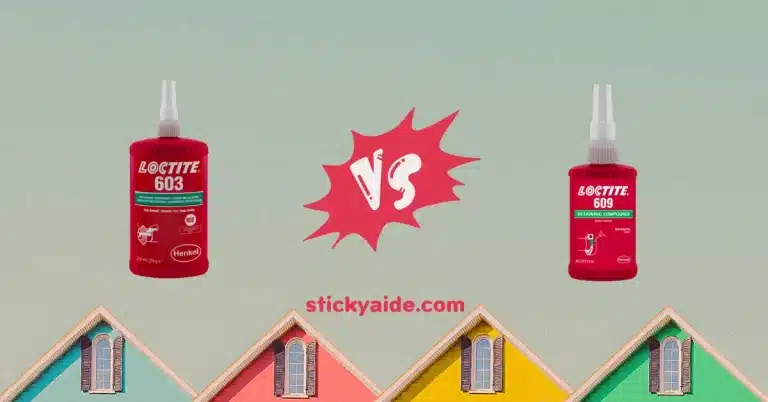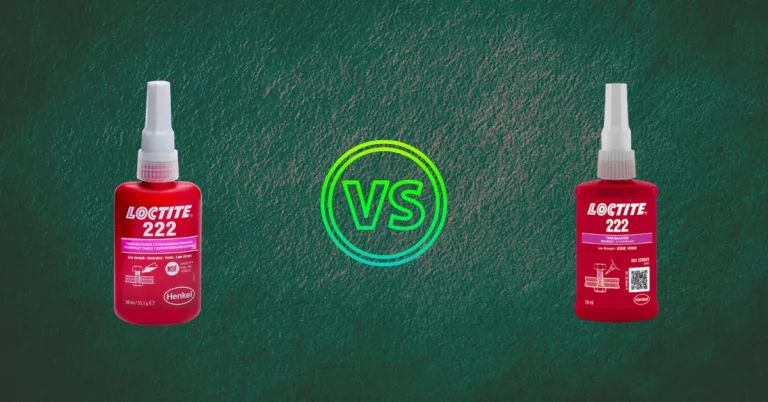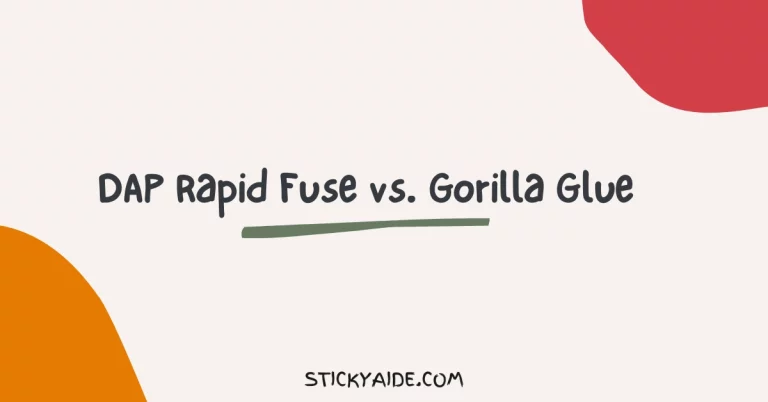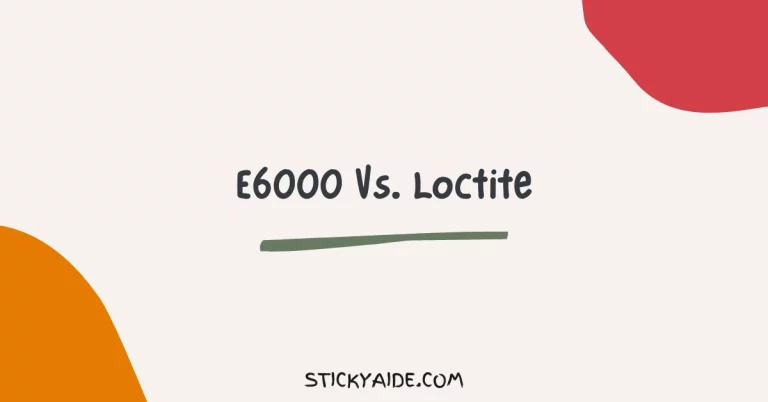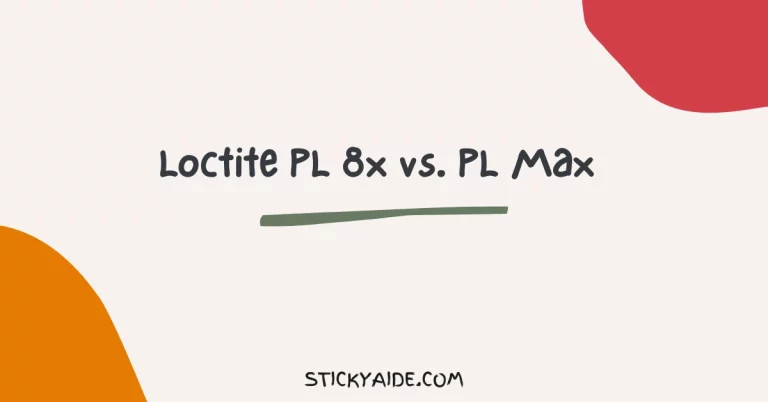Did you break your favorite metal statue and wonder how to repair it?
Or do you want to create a DIY project with metal parts and don’t know what glue works on metal?
Well, don’t worry more. That’s because I have a list of the most effective glues that work on metal for your convenience.
After thorough research and spending a lot of money (buying different types of glues), I finally found what adhesive works on metal.
Keep on reading to find them out.
Common Types of Glues That Stick to Metal
Even though different types of glues are available in the market, not all of them work well on metal.
I have a list of the best glues that work on metal for your convenience.
#1 Epoxy Adhesive
If you ask what type of adhesive is the best choice for metal, I would say epoxy adhesives without any hesitation. It is one of the most effective glues for metals out there.
Made from a combination of resin or epoxy polymer and a hardener, this thermosetting glue creates a super strong and permanent bond between metal and other surfaces.
It doesn’t matter if you want to stick metal to metal, glass, wood, or any other type of surface; epoxy resins create a bond that is more robust than ever.
Moreover, as this glue can withstand high temperatures, pressure, and chemicals, it offers a durable adhesion that won’t get loose or come off anytime soon.
Benefits And Limitations of Epoxy Adhesives For Metal
Benefits of Epoxy Adhesives
- Creates a strong and sturdy bond in metal surfaces
- It can be used on various surfaces
- Comes in a variety of forms to choose from
- Dries down to a transparent color to offer convenience
- Resistant to high heat and pressure to ensure durability
Limitations of Epoxy Adhesives
- Epoxy adhesives take a long time to cure compared to the others
#2 Cyanoacrylate-Based Adhesive
Cyanoacrylate adhesive, more popularly known as Superglue, is an excellent choice for attaching metal to other suitable surfaces. As the name suggests, it creates a super strong bond that won’t come off easily and quickly.
Made with cyanoacrylate, this high-performance industrial glue is incredibly versatile and works on most metals for your convenience. It doesn’t matter if you are trying to glue aluminum, steel, or any other metals; it will never fail to create a durable bond.
Also, as this adhesive is fast drying and works even under pressure and moisture, you can work with it quickly without any issues.
All you need to do is apply the glue, smear it, and join the surfaces. Voila! The surfaces are joined in minutes.
Benefits And Limitations of Cyanoacrylate-Based Adhesive For Metal
Benefits of Cyanoacrylate-Based Adhesive
- Dries down to a transparent color for your convenience
- Creates an incredibly strong and durable bond
- Versatile and can be used on a number of surfaces
- Can resist high temperature and pressure
Limitations of Cyanoacrylate-Based Adhesive
- It might attach your skin or fingers if you are not careful
- Needs to be used in a controlled manner for safety and protection
#3 Polyurethane-based Adhesive
Polyurethane-based adhesive is another excellent glue that works incredibly well on metal. This polymer-based, thermoplastic glue creates a strong bond with metals and other surfaces to give you peace of mind.
Another benefit of this glue is that it is UV and heat-resistant. Even if you leave the bonded metal surface outside, the bond won’t melt and create a mess.
Moreover, as polyurethane-based adhesives are resistant to water, the adhesion they form is super durable and won’t come off anytime soon.
Besides being strong and permanent, one benefit of this glue that will impress you is its flexibility. You can play with the bond and its pattern until the glue is fully cured.
However, as this glue isn’t suitable for plastic surfaces, remember not to attach your metals to plastic. The bond won’t be as strong as you want it to be.
Benefits And Limitations of Polyurethane-based Adhesive For Metal
Benefits of Polyurethane-based Adhesive
- Can endure high heat and chemicals for a long-lasting bond
- Resistant to UV and water to ensure the bond is super durable
- Offers flexibility to customize the adhesion
- Smooth consistency for easy application
Limitations of Polyurethane-based Adhesive
- Takes time to dry and cure properly
- Not suitable for all types of surfaces
Last Opinion
There is no doubt that you can join metals with metals and other surfaces with an adhesive. And when you know what glue works on metal, the battle is half-won.
Now that you have a list of all the glues that work on metal, it has become much easier for you to repair your belongings and try DIY projects yourself.
Go through the list carefully and determine which adhesives best suits your needs. The right type of glue would help hold the bond with metal for years to come.


